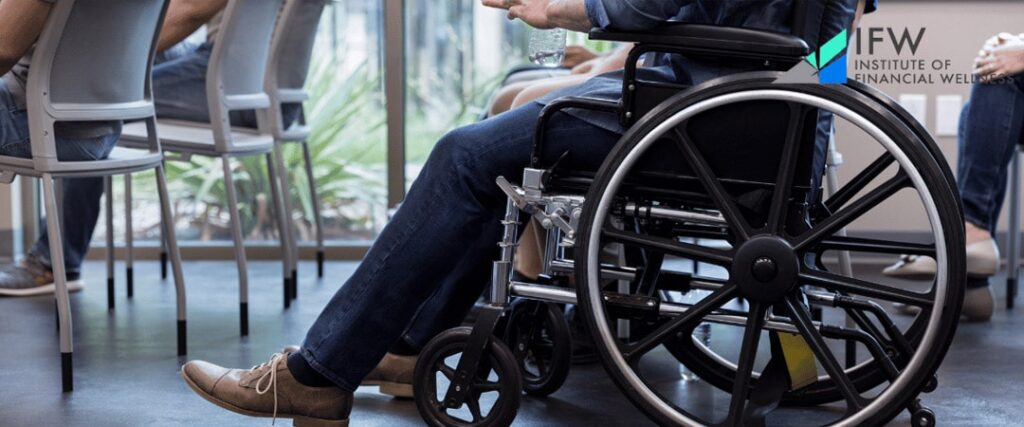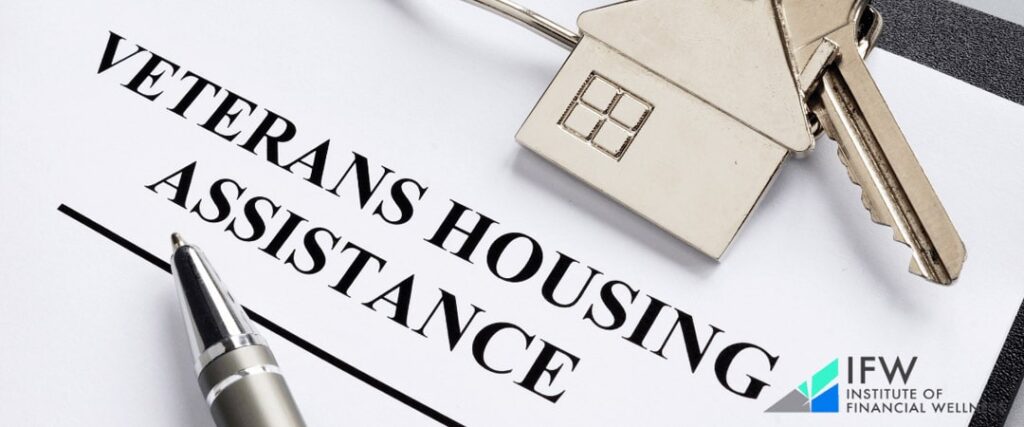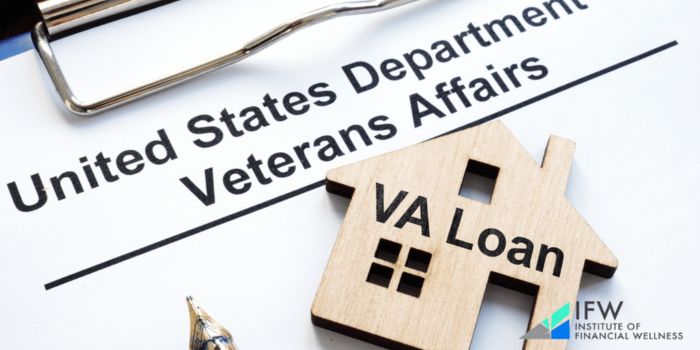Transitioning from military service to civilian life can be difficult, so it’s important for veterans and their families to understand the numerous free benefits available. These supports span many aspects of living – including health care, financial aid, and educational opportunities – that are designed with veteran well-being in mind. Get ready! Let’s take a look at how these services provide a better path towards an easier resumption into everyday society.
Don’t forget, if you want custom retirement planning advice, feel free to sign up for The IFW Retirement Roadmap Webinar today!
Key Takeaways
- The VA provides a range of free benefits to veterans, including health care, education, and financial assistance.
- Veterans can access mental health services from the VA and other organizations, as well as telehealth options for virtual care.
- Additional programs provide housing loans and job search assistance, along with family support through the CHAMPVA program or DIC compensation.
Overview of Free Benefits for Veterans
Veterans have earned a range of free advantages for their dedicated service to the nation. The Department of Veterans Affairs (VA) supervises many of these benefits, making certain veterans and their families receive appropriate assistance. Among the major VA merits are disability compensation, pension plans, as well as the GI Bill plus vocational rehabilitation and employment, which address particular issues confronting those who leave active duty behind and become civilians once again. It’s crucial that both vets along with family members fully understand what is available through such entitlements and meet any relevant eligibility requirements if they wish to utilize them completely.
Healthcare, educational facilities, financial aid, and housing are among other advantages programs bestowed upon participants. It’s imperative, too, that veterans take full awareness regarding such accolades from VA Benefit Programs or possibly may risk failing to obtain just remunerations due. Pensions provided by this government department support retired personnel, including military members whose physical condition has declined since last transitioning out to civilian life.
Health Care Benefits for Veterans

Veterans are offered comprehensive health benefits to ensure their physical and mental well-being. Some of these advantages extend even to a former spouse, depending on certain criteria for eligibility. This includes an array of services addressing the psychological impacts of military service. Along with telehealth options, granting convenient access so veterans can get timely care no matter where they live or work.
Mental Health Services
Military veterans have a variety of mental health services available to them, both from the VA and other organizations. The Department of Veteran Affairs provides clinical resources, peer support programs, and counseling sessions for those in need as they transition into retirement life. Similarly, U.S. VETS and Wounded Warrior Project give veterans access to helpful assistance when it comes to psychological well-being during this period after military service ends.
These dedicated free programs enable retired servicemen or women with essential help while tackling their readjustment issues surrounding leaving active duty duties behind so that better sustained mental wellness can be maintained for longer periods post-military retirement years ahead.
Telehealth Services
Telehealth has become a critical source of care for veterans in recent years. VA providers can administer medical services through virtual visits and securely transmit necessary health data without requiring an on-site visit. This provides timely access to quality healthcare no matter where the veteran resides.
The largest telehealth program is managed by the VA, providing more than 50 specialized services that benefit their eligible user base. Those who need information regarding urgent care availability via this method are encouraged to call 844-MyVA311 (844-698-2311) to confirm eligibility status first before proceeding with remote options offered by the system. What’s the main benefit? Employing such systems not only simplifies the overall process but also ensures that all vets have secure access to their needed treatments regardless of geographical restrictions or other personal limitations they face, which became incredibly important since COVID.
Educational Benefits and Assistance

The military and its members making the transition into civilian life can benefit from both the GI Bill and vocational rehabilitation and employment programs to help fulfill their educational goals. These provide an array of advantages for veterans who want to pursue their education or seek career advancement. Hold on tight! Let’s delve deeper into these two beneficial initiatives in order to understand how they support service people’s ambitions.
GI Bill
The GI Bill is a law offering financial assistance and coverage to servicemembers, veterans, and their dependents. It covers tuition fees as well as monthly housing allowance along with a book supplies stipend for approved programs related to educational purposes.
Those who are eligible need to fill out an application form under the Veterans Affairs Department or at any local VA office in order to receive benefits from this act. Eligibility requirements vary based on the type of service rendered by the applicant, such as length served, etc. The GI bill provides the necessary support, which can be especially helpful when it comes to helping pay associated expenses incurred while pursuing education for those who have been part of military services before themselves or through their family members/dependents.
Vocational Rehabilitation and Employment
The Vocational Rehabilitation and Employment (VR&E) program offers support to veterans with service-connected disabilities by providing them with job training, employment accommodations, and career counseling services. The eligibility for these benefits is determined based on factors such as the veteran’s length of service, disability rating, and other criteria. In order to qualify for VR&E services, a vet must submit an application and participate in an interview process along with a vocational assessment.
In its previous iteration, this program was known as Veteran Readiness & Employment, which is designed to help vets secure meaningful jobs while also aiding them in meeting their educational or training requirements when needed so they can more easily overcome any obstacles that stem from their service-connected disabilities due to disability ratings assigned upon separating from military service. It provides assistance through targeted resources dedicated to helping veterans maintain suitable work opportunities -allowing those who have served our country access vital skillsets enabling personal success after transitioning out of active duty roles into civilian life.
Financial Assistance Programs

Disability compensation and pension plans are designed to give eligible veterans monetary support as they move into civilian life. These financial assistance programs offer benefits that help them overcome economic hardship and maintain a secure future. We will now examine the specifics of these disability compensation and pension options, highlighting how these benefit vets who may be in need of extra funds.
Disability Compensation
Veterans who were injured or developed a sickness during their active military service are entitled to disability compensation. This tax-free monetary benefit is proportional to the seriousness of the individual’s impairment and the amount of gross retired pay received by them, where more extreme cases are given bigger payments.
Applying for VA disability compensation can be done either online, through mail delivery, or in person at any authorized Veterans Affairs office – an ideal source of revenue allowing veterans with service-connected disabilities to continue living fulfilling lives after leaving the military field.
Pension Plans
Veterans who have a low income and served in the military during wartime may be eligible for specific pension plans that provide them with financial support. Various benefits are included, such as the Veterans Pension program, Disability Pension from the VA (Department of Veteran Affairs), and payment to survivors of veterans.
Eligibility criteria vary depending on the type of plan but include eligibility parameters linked to retired pay status or service period duration. This important assistance helps veterans achieve stability after they leave active duty. Enabling those who qualify for these programs access critical resources that will help cover their living expenses while also giving them peace of mind about their future retirement needs.
Housing and Home Loan Benefits

When it comes to housing and home loan benefits for veterans, there are several options available that can provide invaluable assistance. To begin with, they have access to a guaranteed Home Loan as well as the opportunity to receive Housing Assistance Grants without having limitations on how much may be given. Multiple financing options open up doors that were otherwise closed off prior. Plus, those who are disabled or need specially adapted homes receive extra grants, too! All these services prove beneficial in helping veterans find suitable accommodations that match their needs perfectly.
Employment and Career Support

As veterans begin to adjust to civilian life, they may seek out the help of various employment and career support services. These tools provide access to job search assistance, counseling for their chosen career path, placement opportunities, and many other vital resources that can assist them in securing a successful future. Through these programs, veterans are able to sharpen valuable skills while also boosting their earning potential by finding steady jobs suited for them. Brace yourself! Here, we will take an overview of what kinds of services exist that can be utilized by those who have served our country so honorably, as well as how they can benefit from such offerings going forward on their new paths outside of the military world.
Family and Survivor Benefits

To ensure that the families of veterans receive adequate care, benefits have been implemented for their protection. These consist of CHAMPVA and Dependency and Indemnity Compensation programs, which are designed to offer assistance to those affected by veteran’s service. In order to better understand how these two resources can help individuals in need, let us look more closely at both specifics.
CHAMPVA Program
The CHAMPVA Program of the Department of Veterans Affairs is a comprehensive healthcare benefits package intended for spouses, widows (ers), and children of veterans who have served in military services. In order to be eligible for this program, it must be determined that the veteran has been rated permanently and totally disabled as an effect of service-connected disability. Benefits include hospital care, outpatient care, prescription drugs, and mental health services. These can all be applied through online or at local VA offices by submitting forms provided by them.
Veterans Affairs facilitates access to various medical aid programs such as their CHAMPVA, which offers extensive healthcare options concerning those with disabilities resulting from service-connected issues – spouse/widow(er)/child – or active duty soldiers returning home after service stints. The offered amenities are inclusive but not limited to Hospital Care, Outpatient Care, Prescription Drugs, and Mental Health Services. One must fulfill certain criteria making him/her a qualified applicant before applying; documents needed may vary per individual cases, though they typically require proof invalidation due to a handicap rooted directly out of applicable military forces.
Dependency and Indemnity Compensation
The Department of Veterans Affairs (VA) administers the Dependency and Indemnity Compensation benefit, which offers qualified survivors of deceased military servicemembers tax-free monthly assistance. This financial support is available to help surviving spouses, children, or parents compensate for their loss of income due to the death of a veteran member while on active duty. Eligibility requirements must be met in order for them to receive this type of compensation from VA.

Get Advice For Veterans From The Institute of Financial Wellness
The Institute of Financial Wellness offers a wide range of services, including financial calculators, budgeting tools, and educational materials to provide veterans and their families with the knowledge needed for making sound monetary decisions. This multi-media platform provides resources that are necessary in order for those who have served or are serving our country to attain fiscal well-being.
This comprehensive network has been created as an avenue from which veterans can gain access to essential information about finances so they may achieve stability financially both now and into the future. Through these services, individuals get valuable guidance on how best to manage money matters, allowing them to reach financial success.
Full Summary
Veterans and their families who have provided dedicated service to the nation are entitled to a range of benefits that can ease their transition into civilian life. These include access to healthcare, education opportunities, financial aid, and housing, all subject to eligibility requirements that must be carefully considered in order for veterans to make full use of these resources available.
Frequently Asked Questions
Do you get extra money from Social Security for being a veteran?
If you served in the military between 1957 and 2001, you will receive extra credits when applying for Social Security, though no additional credits are given if you served after 2001.
Your military pension does not affect your Social Security benefits, and survivors’ benefits may only affect those payable under the Department of Defense Survivors Benefit Plan.
What is the 5-year rule for VA disability?
The VA 5-year rule safeguards your disability rating from being lessened as long as it has been running for five years or more. After this period of time, the evaluation is accepted to be static. This protection preserves a veteran’s disability benefits and prevents any possible decrease in their current awarded amount received through the VA’s Disability Compensation program.
What do Veterans get when they retire?
Veterans can receive a wide variety of benefits, including disability compensation, pension, education and training, health care, home loans, insurance, Veteran Readiness, Employment, and burial.
Additionally, they may be eligible for a Veterans Pension and the Blended Retirement System, which includes government contributions to a Thrift Savings Plan up to 4% as well as a pension based on an average of their highest 36 months of basic pay.




